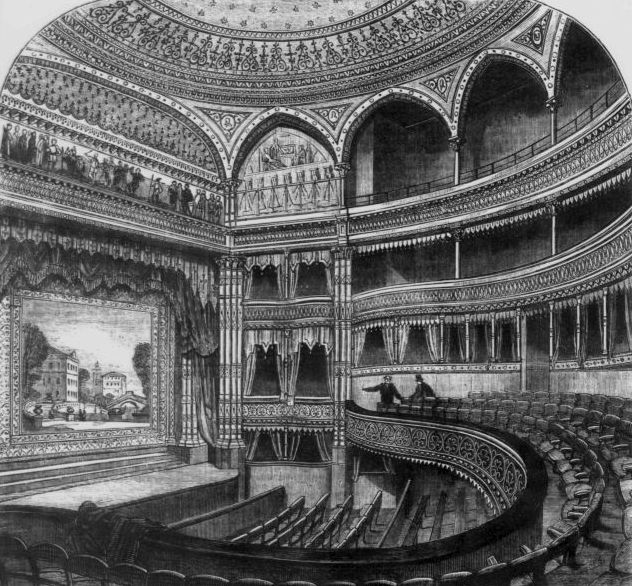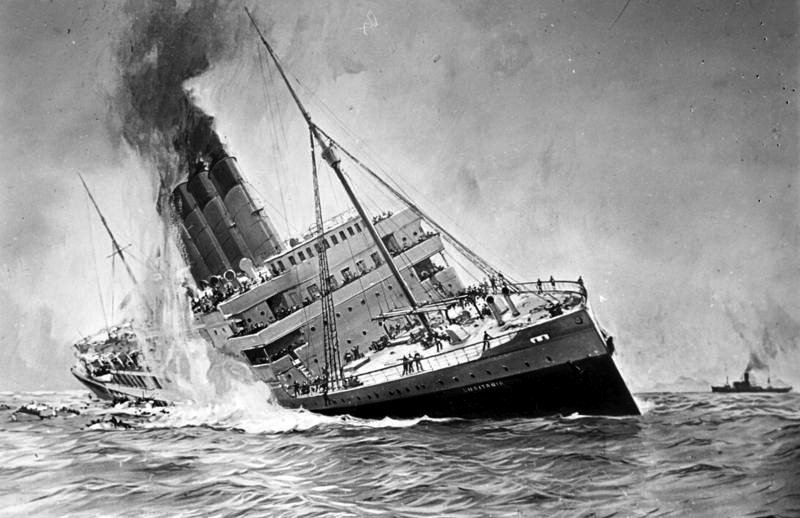|
The Beauty Spot
''The Beauty Spot'' was a 1909 musical comedy in two acts that played for 137 performances at the Herald Square Theatre in New York with music by Reginald De Koven, a book by Joseph W. Herbert and additional lyrics by Terry Sullivan. The musical provided early appearances for the actresses Lillian Worth (as Lillian Wiggins) and Evelyn Laye. Herbert had authored a musical play ''The Prince of Borneo'', which was staged in three different versions in three different continents under three different titles in search of success until it eventually emerged in 1909 as ''The Beauty Spot'' to music by Reginald De Koven,Kurt Gänzl, ''Encyclopedia of the Musical Theatre'', Second edition. Three volumes. New York: Schirmer Books, 2001 who composed the score in 1907. ''The Beauty Spot'' ran at the Herald Square Theatre on Broadway theatre, Broadway for 137 performances from 10 April 1909 to 7 August 1909. [...More Info...] [...Related Items...] OR: [Wikipedia] [Google] [Baidu] |
The Beauty Spot 1909 Herald Square Theatre
''The'' () is a grammatical Article (grammar), article in English language, English, denoting persons or things that are already or about to be mentioned, under discussion, implied or otherwise presumed familiar to listeners, readers, or speakers. It is the definite article in English. ''The'' is the Most common words in English, most frequently used word in the English language; studies and analyses of texts have found it to account for seven percent of all printed English-language words. It is derived from gendered articles in Old English which combined in Middle English and now has a single form used with nouns of any gender. The word can be used with both singular and plural nouns, and with a noun that starts with any letter. This is different from many other languages, which have different forms of the definite article for different genders or numbers. Pronunciation In most dialects, "the" is pronounced as (with the voiced dental fricative followed by a schwa) when fol ... [...More Info...] [...Related Items...] OR: [Wikipedia] [Google] [Baidu] |
Paul Barnes (songwriter)
Paul Barnes (pseudonym of George Franklin Feger; October 10, 1868 – May 8, 1922) was a vaudeville comedic actor, singer, pianist, and songwriter who, with Will D. Cobb as lyricist, in 1897 composed the Spanish–American War-era hit, "Goodbye, Dolly Gray." Selected works Worked published by Cruger Bros., New York The following works were published by Cruger Bros., New York: * "The moon and Crescent" (©1894), Paul Barnes (w&m) * "My Sweetheart Gets Married To Me," ballad (©1894), Paul Barnes (w&m), * "Love Me As I Love You," ballad (©1894), Paul Barnes (w&m), * "A Venetian Lullaby" (©1894), Emil Oscar Wolff (1858–1929) (music), Paul Barnes (words), * "Forget Me Not," ballad (©1894), Paul Barnes (w&m), * "In the Old Churchyard," ballad (©1894), Paul Barnes (w&m), * "Pretty Little Mary" (©1894), Paul Barnes (w&m), * "Please Come Home," ballad (©1894), Paul Barnes (w&m), * "Thoughts of Thee," ballad (©1894), Dox Cruger (music), Paul Barnes (words), * "Nellie ... [...More Info...] [...Related Items...] OR: [Wikipedia] [Google] [Baidu] |
James W
James is a common English language surname and given name: *James (name), the typically masculine first name James * James (surname), various people with the last name James James or James City may also refer to: People * King James (other), various kings named James * Saint James (other) * James (musician) * James, brother of Jesus Places Canada * James Bay, a large body of water * James, Ontario United Kingdom * James College, a college of the University of York United States * James, Georgia, an unincorporated community * James, Iowa, an unincorporated community * James City, North Carolina * James City County, Virginia ** James City (Virginia Company) ** James City Shire * James City, Pennsylvania * St. James City, Florida Arts, entertainment, and media * ''James'' (2005 film), a Bollywood film * ''James'' (2008 film), an Irish short film * ''James'' (2022 film), an Indian Kannada-language film * James the Red Engine, a character in ''Thomas the Tank ... [...More Info...] [...Related Items...] OR: [Wikipedia] [Google] [Baidu] |
National Portrait Gallery, London
The National Portrait Gallery (NPG) is an art gallery in London housing a collection of portraits of historically important and famous British people. It was arguably the first national public gallery dedicated to portraits in the world when it opened in 1856. The gallery moved in 1896 to its current site at St Martin's Place, off Trafalgar Square, and adjoining the National Gallery (London), National Gallery. It has been expanded twice since then. The National Portrait Gallery also has regional outposts at Beningbrough Hall in Yorkshire and Montacute House in Somerset. It is unconnected to the Scottish National Portrait Gallery in Edinburgh, with which its remit overlaps. The gallery is a non-departmental public body sponsored by the Department for Digital, Culture, Media and Sport. Collection The gallery houses portraits of historically important and famous British people, selected on the basis of the significance of the sitter, not that of the artist. The collection includes ... [...More Info...] [...Related Items...] OR: [Wikipedia] [Google] [Baidu] |
Gaiety Theatre, London
The Gaiety Theatre was a West End theatre in London, located on Aldwych at the eastern end of the Strand. The theatre was first established as the Strand Musick Hall in 1864 on the former site of the Lyceum Theatre. In 1868, it became known as the Gaiety Theatre and was, at first, known for music hall and then for musical burlesque, pantomime and operetta performances. From 1868 to the 1890s, it had a major influence on the development of modern musical comedy. Under the management of John Hollingshead until 1886, the theatre had early success with ''Robert the Devil'', by W. S. Gilbert, followed by many other burlesques of operas and literary works. Many of the productions starred Nellie Farren. Hollingshead's last production at the theatre was the burlesque ''Little Jack Sheppard'' (1885–86), produced together with his successor, George Edwardes. Edwardes's first show, ''Dorothy'', became a long-running hit. In the 1880s and 90s, the theatre had further success with a ... [...More Info...] [...Related Items...] OR: [Wikipedia] [Google] [Baidu] |
The Beauty Spot Gaiety 1917
''The'' () is a grammatical article in English, denoting persons or things that are already or about to be mentioned, under discussion, implied or otherwise presumed familiar to listeners, readers, or speakers. It is the definite article in English. ''The'' is the most frequently used word in the English language; studies and analyses of texts have found it to account for seven percent of all printed English-language words. It is derived from gendered articles in Old English which combined in Middle English and now has a single form used with nouns of any gender. The word can be used with both singular and plural nouns, and with a noun that starts with any letter. This is different from many other languages, which have different forms of the definite article for different genders or numbers. Pronunciation In most dialects, "the" is pronounced as (with the voiced dental fricative followed by a schwa) when followed by a consonant sound, and as (homophone of the archaic pr ... [...More Info...] [...Related Items...] OR: [Wikipedia] [Google] [Baidu] |
The Pittsburgh Press
''The Pittsburgh Press'' (formerly ''The Pittsburg Press'' and originally ''The Evening Penny Press'') was a major afternoon daily newspaper published in Pittsburgh, Pennsylvania, from 1884 to 1992. At one time, the ''Press'' was the second largest newspaper in Pennsylvania, behind only ''The Philadelphia Inquirer''. For four years starting in 2011, the brand was revived and applied to an afternoon online edition of the ''Pittsburgh Post-Gazette''. Early history The history of the ''Press'' traces back to an effort by Thomas J. Keenan Jr. to buy ''The Pittsburg Times'' newspaper, at which he was employed as city editor. Joining Keenan in his endeavor were reporter John S. Ritenour of the Pittsburgh ''Post'', Charles W. Houston of the city clerk's office, and U.S. Representative Thomas M. Bayne. After examining the ''Times'' and finding it in a poor state, the group changed course and decided to start a new penny paper in hopes that it would flourish in a local market full of t ... [...More Info...] [...Related Items...] OR: [Wikipedia] [Google] [Baidu] |
Josephine Brandell
Josephine Mary Brandell (September 1887–27 June 1977) was an Austrian-Jewish musical actress and actress notable for surviving Sinking of the RMS Lusitania, the torpedoing of the RMS Lusitania, RMS ''Lusitania'' in 1915. Following her marriage in 1945 to Beresford Cecil Bingham, 8th Earl Annesley she became Josephine, Countess of Annesley. Early life According to the 1900 U.S. Federal Census and the 1905 New York State Census, Josephine Brandell was actually born as Janetta Kleinberg in Austria in 1887 into a Jewish family, the daughter of Fishel 'Phillip' Kleinberg (born 1848) and Yetta née Goldstein (1857-1953). Her siblings included Samuel Lasker Kleinberg, Sadie Zehring Kleinberg and William Kleinberg. Later in applications for passports and American citizenship she claimed that she was a British citizen born on 26 November 1891 or 1892 in Bucharest in Romania, the daughter of Phillip Brandell. Her father, a tailor by profession, immigrated to the United States of Ame ... [...More Info...] [...Related Items...] OR: [Wikipedia] [Google] [Baidu] |
The Beauty Spot 1911
''The'' () is a grammatical article in English, denoting persons or things that are already or about to be mentioned, under discussion, implied or otherwise presumed familiar to listeners, readers, or speakers. It is the definite article in English. ''The'' is the most frequently used word in the English language; studies and analyses of texts have found it to account for seven percent of all printed English-language words. It is derived from gendered articles in Old English which combined in Middle English and now has a single form used with nouns of any gender. The word can be used with both singular and plural nouns, and with a noun that starts with any letter. This is different from many other languages, which have different forms of the definite article for different genders or numbers. Pronunciation In most dialects, "the" is pronounced as (with the voiced dental fricative followed by a schwa) when followed by a consonant sound, and as (homophone of the archaic pr ... [...More Info...] [...Related Items...] OR: [Wikipedia] [Google] [Baidu] |
.png)



